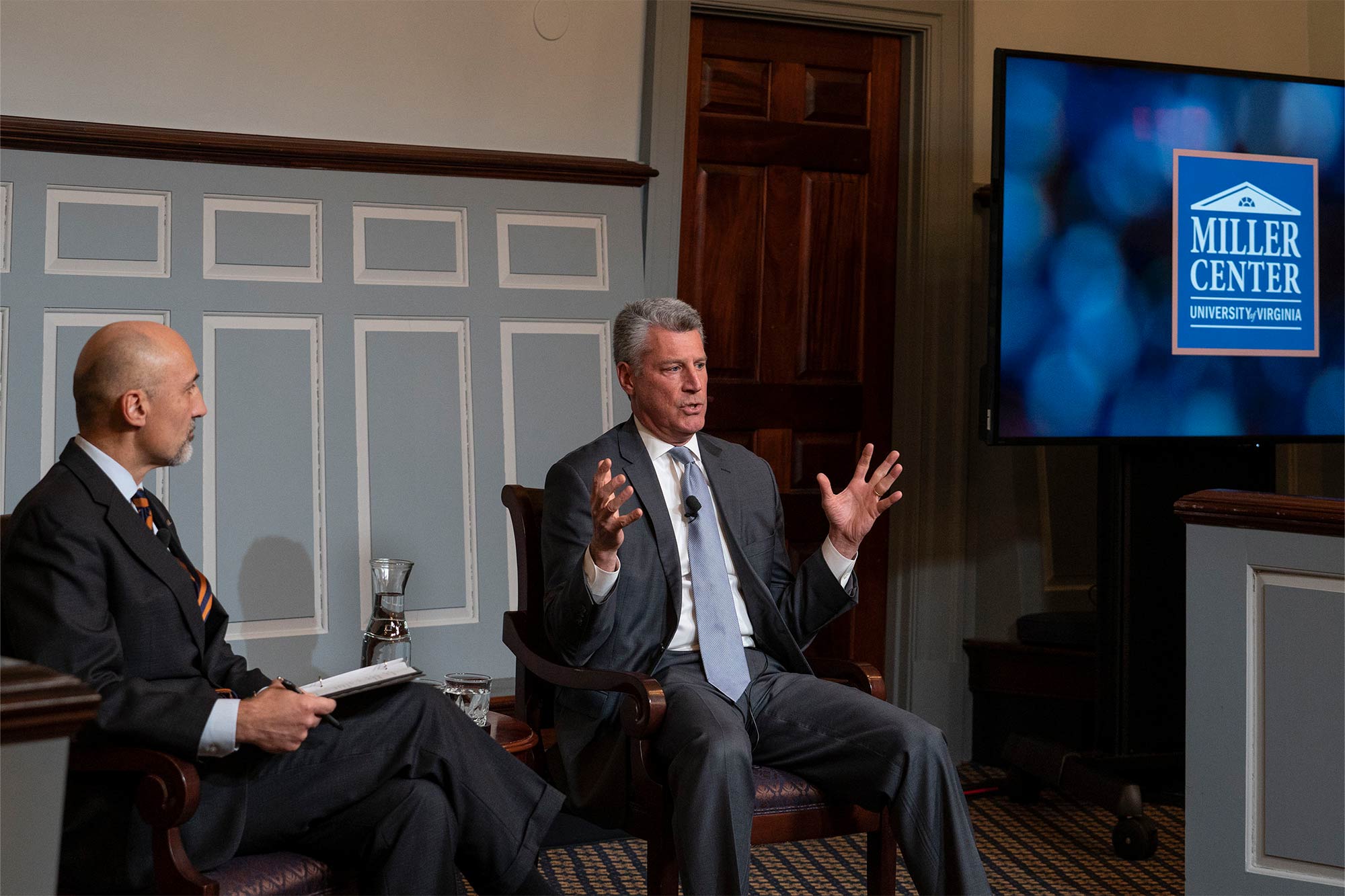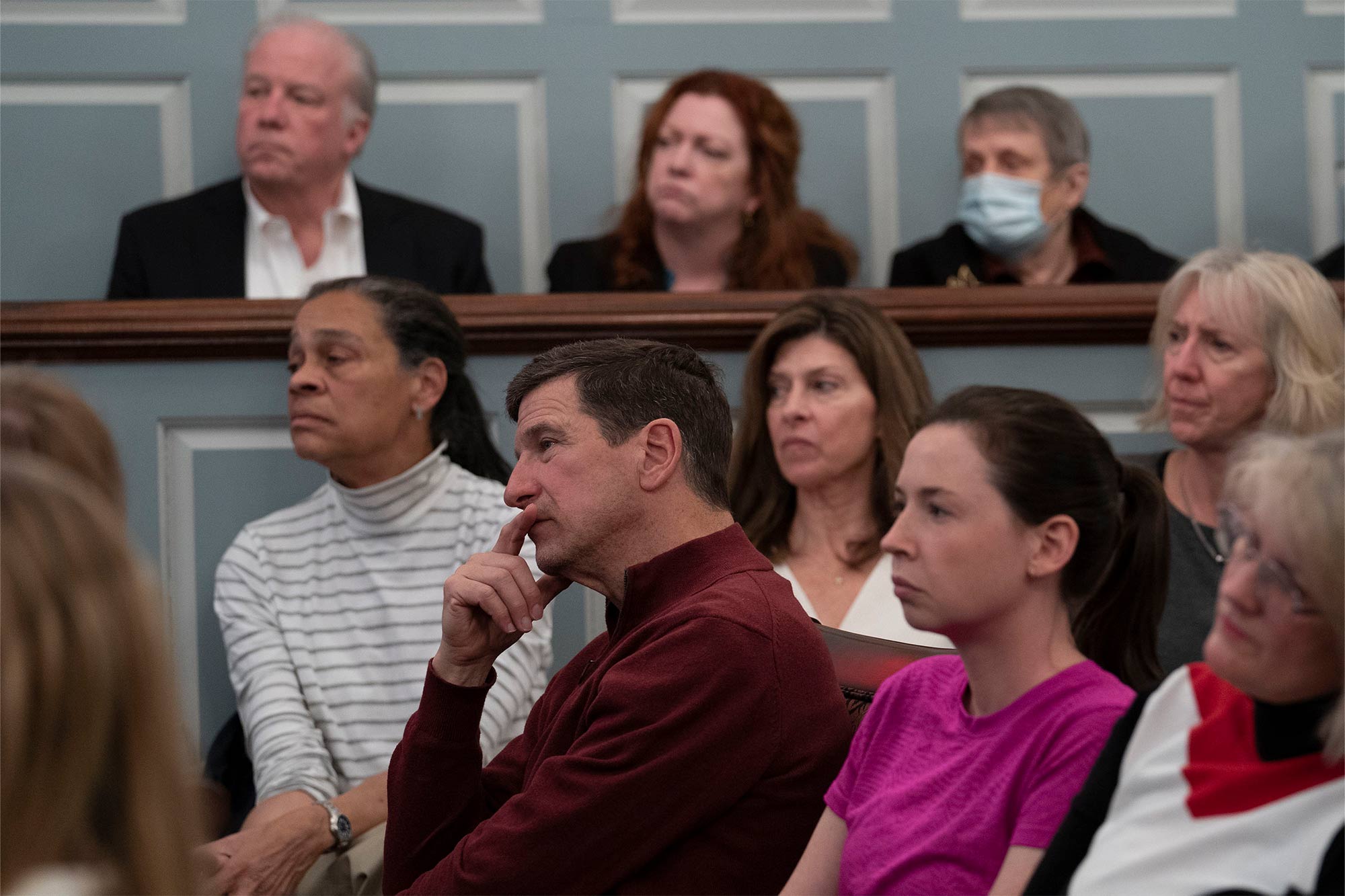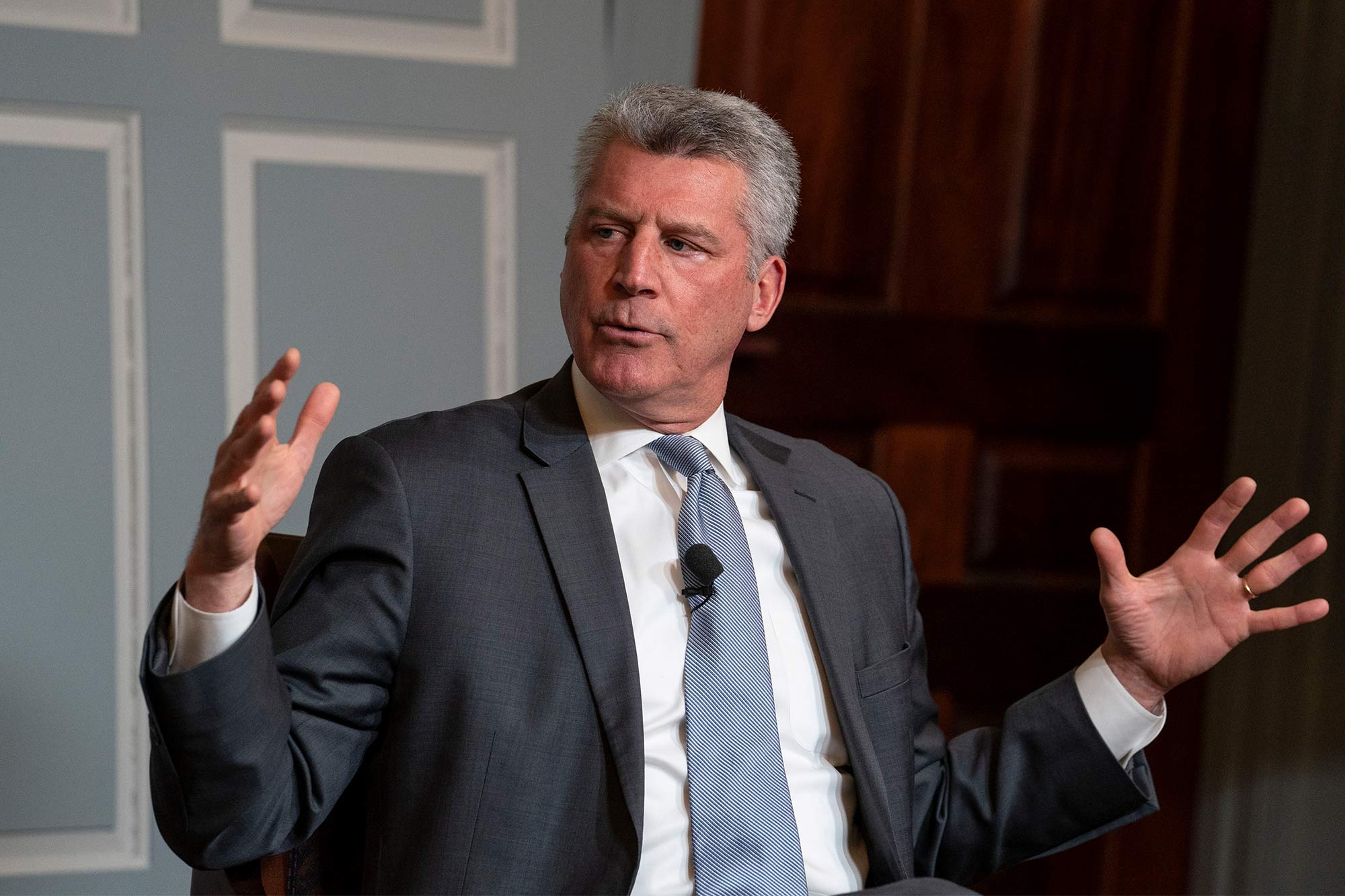The question from Miller Center Director and CEO William Antholis was straightforward: Do the federal prosecutors investigating former President Donald J. Trump need to be sure of a conviction before moving ahead with indictments?
Timothy J. Heaphy didn’t pause even a moment. “You don’t swing at the king unless you can knock him out,” Heaphy responded.
For months now, the University of Virginia alumnus, who also once served as UVA’s general counsel, has led a fleet of attorneys and investigators digging into the Jan. 6 insurrection. His team pored over an almost unimaginable cache of evidence, including tens of thousands of hours of video, troves of text messages and transcripts of more than a thousand interviews.
“A mountain of evidence, a blessing and curse for investigators,” he said.
For an hour at UVA’s Miller Center on Monday, Heaphy answered questions about the Jan. 6 assault on the U.S. Capitol, during what was normally expected to be a ceremonial transfer of presidential power. Instead, rioters who earlier chanted “Hang Mike Pence!” burst into the building and came within 40 feet of Trump’s vice president, Heaphy said.
“I didn’t know how close we came from a very different outcome on Jan. 6,” he said.
Heaphy, who earned a bachelor’s degree in 1986 and a law degree in 1991 from the University, was appointed in 2009 as U.S. Attorney for the Western District of Virginia by then-President Barack Obama. He served in the U.S. Justice Department between 1994 and 2014.







